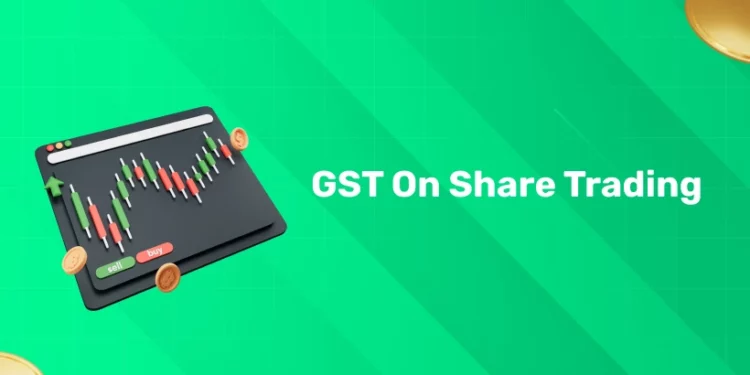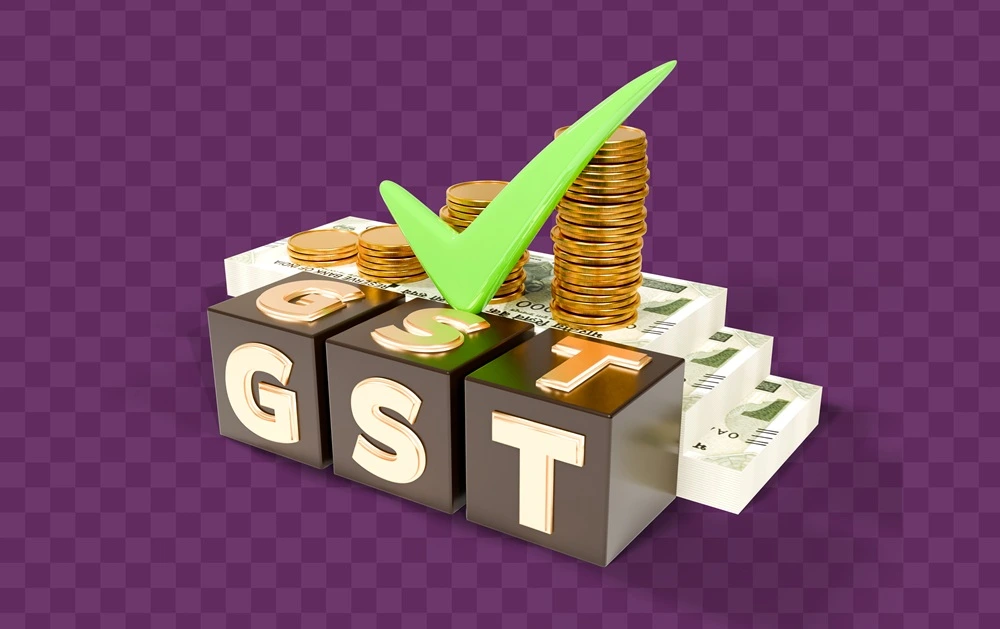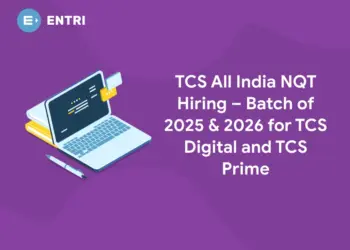Table of Contents
In India, Goods and Services Tax or GST has made a great impact on different sectors, including the trading of shares. You may be an intraday trader, short-term investor, long-term investor, or F&O trader, but it’s important to have a clear understanding of how GST applies to trading. In addition to GST, traders also need to consider other charges that affect their net costs and profits.
This blog gives you a complete breakdown of GST in trading, the charges to be aware of, and insights into GST 2.0 changes that could impact traders in the future.
Key Takeaways:
- GST is charged on service components of trading, such as brokerage, transaction fees, clearing charges, and Demat account maintenance, at a flat rate of 18%.
- GST does NOT apply to profits/losses, STT, or stamp duty.
- New GST 2.0 reforms, effective September 22, 2025, rationalize GST slabs but share trading-related services within the 18% slab.
- Traders must account for GST charges along with other fees to understand the true cost of trading.
What is GST?
GST (Goods and Services Tax) is an indirect tax on the supply of goods and services in India. Introduced in July 2017, it replaced multiple indirect taxes such as VAT, service tax, and excise duty, simplifying the taxation system.
The GST structure includes:
-
CGST (Central Goods and Services Tax)
-
SGST (State Goods and Services Tax)
-
IGST (Integrated Goods and Services Tax)
For services like share trading, GST is usually 18%. It applies to brokerage fees, transaction charges, and other broker services, but capital gains from share trading are exempt from GST.
Start investing like a pro. Enroll in our Stock Market course!
GST on Share Trading: General Overview
1: What is a stock?
Share trading involves the buying and selling of shares or securities, and it includes various services such as brokerage, clearing and settlement charges, and account maintenance fees. While capital gains earned from trading are not subject to GST, the services associated with trading, like brokerage and transaction charges, are.
GST is primarily levied on:
-
Brokerage Fees charged by brokers for executing trades.
-
Transaction Charges, including Securities Transaction Tax (STT) and exchange fees.
-
Depository Participant (DP) Charges for maintaining a demat account and transferring securities.
-
Clearing and Settlement Charges that arise during the finalization of trade transactions.
It is essential for traders to understand that while the profits from share trading (whether short-term or long-term) are exempt from GST, the services provided (like brokerage, DP charges, etc.) attract an 18% GST.
Detailed Breakdown of Trading Charges Subject to GST
Trading on the stock market involves several charges. While profits from trading attract income tax or capital gains tax, GST is levied on specific service charges at 18%:
| Charge Type | GST Applicability | Description |
|---|---|---|
| Brokerage Fees | Applicable (18%) | Fees paid to the stockbroker for executing trades |
| Transaction Charges by Exchanges | Applicable (18%) | Charged by NSE/BSE on trades |
| Clearing Charges | Applicable (18%) | Levied by the clearing corporation |
| Depository Participant (DP) Charges | Applicable (18%) | Charges for Demat account transactions and maintenance |
| Annual Maintenance Charges (AMC) | Applicable (18%) | Annual fee for maintaining Demat account |
| Securities Transaction Tax (STT) | Not applicable (0%) | A statutory tax on sale/purchase of securities |
| Stamp Duty | Not applicable (0%) | State government tax on transaction value |
| SEBI/Exchange Regulatory Fees | Not applicable (0%) | Levied by regulators; exempt from GST |
Charges Applicable to Different Types of Share Trading
Intraday Trading
Intraday trading involves buying and selling stocks on the same day. The aim is to profit from the small price fluctuations within a single day. This is one of the most common forms of trading in India.
Charges in Intraday Trading:
-
Brokerage Fees: This is the fee paid to the broker for executing the trade. It can be a flat fee or percentage-based, depending on the brokerage model.
-
GST (18%) is applicable on the brokerage fee.
-
-
Transaction Charges: These are levied by stock exchanges like the NSE and BSE. The Securities Transaction Tax (STT) is 0.025% on both buy and sell transactions.
-
Transaction charges also include other exchange fees but do not attract GST.
-
-
Stamp Duty: Stamp duty is a state-level tax on securities transactions and is applicable based on the state of the investor’s residence. The rate varies by state but is a small fraction of the total transaction value.
-
Depository Participant (DP) Charges: These charges are levied when securities are transferred or when shares are sold. The 18% GST is applicable on the DP charges.
Example of Charges in Intraday Trading:
For a ₹1,00,000 trade, assuming a brokerage of ₹100:
-
Brokerage Fee: ₹100
-
GST (18% on brokerage): ₹18
-
Transaction Charges (STT, Exchange Fee, etc.): ₹10
-
Stamp Duty: ₹1
-
DP Transaction Charges (Selling): ₹15
-
GST on DP Charges (18%): ₹2.7
Total Charges for Intraday Trading: ₹146.7
| Gain Financial Literacy in your Mother Tongue | |
| Stock Market Course in Malayalam | Mutual Funds Course in Malayalam |
| Stock Market Course in Tamil | Mutual Funds Course in Tamil |
| Stock Market Course | Mutual Funds Course |
Short-Term Share Trading
Short-term trading involves holding securities for less than one year before selling them. The charges associated with short-term trading are similar to intraday trading but with some additional considerations for capital gains tax.
Charges in Short-Term Trading:
-
Brokerage Fees: Just like intraday trading, brokers charge a flat fee or a percentage-based fee, which is subject to 18% GST.
-
Transaction Charges: The Securities Transaction Tax (STT) on short-term equity trades is 0.1% of the selling price.
-
GST on Brokerage Fees: The brokerage fee is subject to 18% GST.
-
Stamp Duty: Stamp duty, applicable in the state of the investor’s residence, is included in the total transaction cost.
-
Depository Participant (DP) Charges: These charges apply when securities are sold or transferred. 18% GST is applicable on these charges.
-
Short-Term Capital Gains Tax (STCG): If the securities are sold within a year, the STCG tax is 15% of the profit.
Example of Charges in Short-Term Trading:
For a ₹1,00,000 trade, assuming a brokerage of ₹20:
-
Brokerage Fee: ₹20
-
GST (18% on brokerage): ₹3.6
-
Transaction Charges (STT, Exchange Fee, etc.): ₹15
-
Stamp Duty: ₹1
-
DP Transaction Charges (Selling): ₹15
-
GST on DP Charges (18%): ₹2.7
-
STCG Tax (15% on profit): ₹50
Total Charges for Short-Term Trading: ₹107.3
Long-Term Share Trading
Long-term trading involves holding securities for more than a year. The main distinction here is that long-term capital gains are taxed at a lower rate than short-term gains.
Charges in Long-Term Trading:
-
Brokerage Fees: Brokerage is charged based on trade value, and 18% GST is applied on these fees.
-
Transaction Charges: The Securities Transaction Tax (STT) for long-term equity trades is 0.1% on the selling price.
-
GST on Brokerage Fees: 18% GST applies on brokerage.
-
Stamp Duty: Stamp duty is applicable as per the state’s tax laws.
-
Depository Participant (DP) Charges: These charges are applied when securities are sold, and 18% GST is applicable on the DP charges.
-
Long-Term Capital Gains (LTCG) Tax: If the holding period exceeds one year, long-term capital gains (LTCG) tax is 10% on profits exceeding ₹1 lakh in a financial year.
Example of Charges in Long-Term Trading:
For a ₹1,00,000 trade, assuming a brokerage of ₹20:
-
Brokerage Fee: ₹20
-
GST (18% on brokerage): ₹3.6
-
Transaction Charges (STT, Exchange Fee, etc.): ₹20
-
Stamp Duty: ₹1
-
DP Transaction Charges (Selling): ₹15
-
GST on DP Charges (18%): ₹2.7
-
LTCG Tax (10% on profit above ₹1 lakh): ₹100
Total Charges for Long-Term Trading: ₹162.3
Futures and Options (F&O) Trading
Futures and Options (F&O) are derivative contracts where traders buy or sell contracts based on the future price of an asset. F&O trading involves margin trading, and the charges are slightly more complex due to the leverage involved.
Charges in F&O Trading:
-
Brokerage Fees: The brokerage for F&O trading is often higher than for equity trading. These fees are subject to 18% GST.
-
Transaction Charges: The Securities Transaction Tax (STT) for F&O is 0.01% for sell-side transactions.
-
GST on Brokerage Fees: Brokerage is subject to 18% GST.
-
Clearing and Settlement Charges: These charges are also subject to 18% GST.
-
Margin Money: The margin amount required for F&O trading is not taxed under GST, but the broker charges on margin funding and related services may attract GST.
-
DP Charges: If there’s a need to transfer F&O contracts, DP charges are applied, and 18% GST is charged on them.
Example of Charges in F&O Trading:
For a ₹1,00,000 F&O transaction with a brokerage of ₹20:
-
Brokerage Fee: ₹40 (Buying + Selling)
-
GST (18% on brokerage): ₹7.2
-
Transaction Charges (STT, Exchange Fee, etc.): ₹30
-
Clearing Charges: ₹10
-
Stamp Duty: ₹1
-
DP Transaction Charges (Selling): ₹15
-
GST on DP Charges (18%): ₹2.7
Total Charges for F&O Trading: ₹115.9
GST 2.0: Changes and Impact on Share Trading
India’s upcoming GST 2.0 reforms mark a significant overhaul of the GST system, effective from September 22, 2025. While primarily aimed at simplifying tax structures and compliance, here’s what traders need to know regarding GST on share trading:
Simplification of GST Slabs
The GST slab structure is rationalized to mainly 5%, 18%, and 40%. Brokerage and other service charges related to trading continue under the 18% standard slab. No Change in STT or Stamp Duty
Tax on Derivatives
Currently, derivative contracts like F&O are not taxed under GST on profits. But there are discussions that GST 2.0 will introduce tax on profits made from derivative trading. If implemented, this will impact F&O traders and their strategies.
Real Time Reporting and Automation
GST 2.0 will bring automation to tax filing which will make it easier for traders to file their returns. Real time reporting will help traders avoid errors in tax filing and ensure compliance with tax laws.
Improved Compliance & ITC Norms:
Brokerage firms and intermediaries must adhere to enhanced input tax credit (ITC) rules and reporting, streamlining GST credit claims on service inputs. Changes to refund processes and the operationalization of the GST Appellate Tribunal (GSTAT) enhance dispute resolution stability.
Watch the full content in video format here:
Stock Market Training Reviewed & Monitored by SEBI Registered RA
Trusted, concepts to help you grow with confidence. Enroll now and learn to start investing the right way.
Know moreHow to Manage and Optimize Your Trading Costs Including GST
-
Choose brokers with reasonable brokerage fees and GST-inclusive pricing.
-
Consider discount brokers to reduce brokerage components.
-
Review transaction volumes to anticipate GST on service charges.
-
Keep an account of all charges for accurate tax filing and profit calculation.
-
Plan trading strategies factoring in fixed costs like DP AMC and stamp duty.
Conclusion
GST on share trading is important for anyone in the stock market, whether they are trading intraday, short-term, long-term, or doing F&O trading. Capital gains are not taxed under GST, but various service charges like brokerage fees, transaction charges, and DP charges attract 18% GST. Traders should consider all these charges while calculating their costs and profits.
Whether you are a day trader, F&O strategist, or long-term investor, being aware of GST and related charges will help you plan better, optimise trades, and protect your returns.
Stock Market Training Reviewed & Monitored by SEBI Registered RA
Trusted, concepts to help you grow with confidence. Enroll now and learn to start investing the right way.
Know moreFrequently Asked Questions
Is GST applicable on profits from share trading?
No, GST is not levied on profits. It applies only to service charges like brokerage, exchange fees, and SEBI turnover charges.
How much GST is charged on share trading in India?
GST is charged at 18% on brokerage, exchange transaction charges, and SEBI fees.
Does GST apply to intraday trading?
Yes, intraday traders pay GST on brokerage and fees for every trade. The more trades you make, the higher your GST outflow.
Is GST levied on short-term or long-term capital gains?
No, STCG (15%) and LTCG (10%) are covered under income tax. GST is only applied to service charges, not on gains.
How does GST apply in Futures & Options (F&O) trading?
In F&O, GST at 18% applies on brokerage and exchange fees. Profits are taxed separately as business income under income tax.
What other charges do traders pay apart from GST?
Traders also pay STT, stamp duty, SEBI turnover fees, exchange transaction charges, brokerage, and DP charges.
What is the impact of GST on long-term investors?
Minimal, as GST only applies when buying/selling shares through brokerage charges. Capital gains tax applies separately.












